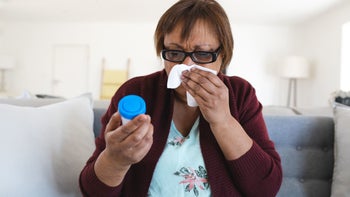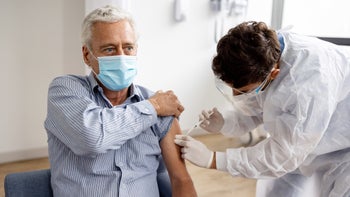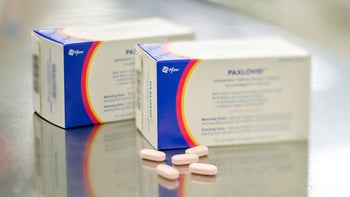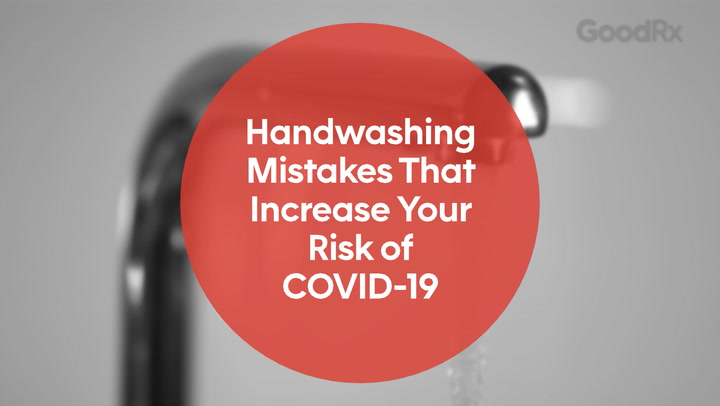
What to Know About COVID-19 Vaccines
Key takeaways:
The best way to protect yourself and those around you from COVID-19 is by getting vaccinated. But COVID vaccine recommendations can change over time, so ask your healthcare professional about when you should receive your next dose.
The Pfizer, Moderna, and Novavax COVID vaccines are all available for you to get. They’re safe and can help prevent severe illness, hospitalization, and death from COVID. The number of doses you’ll need depends on your age, health background, and vaccination history.
After vaccination, you may experience side effects — like headache, injection site pain, and muscle aches — but these are typically mild and go away after a few days.
Access savings to related medications

Currently, three COVID-19 vaccines are available for use in the U.S. — Pfizer, Moderna, and Novavax. They’re helpful tools for preventing severe illness, hospitalization, and death from COVID. The Johnson & Johnson COVID vaccine is no longer authorized for use.
As the virus that causes COVID continues to spread and mutate (change), the best way to protect yourself and those around you is to get vaccinated. And if you have questions or concerns about the COVID vaccines, it’s important that you get the facts to help you make the best decision.
Below, we answer some of the commonly asked questions about the COVID vaccines.
Browse by vaccine or pharmacy
Browse by vaccine brand:
Browse by pharmacy:
Albertsons | Costco | CVS | H-E-B | Hy-Vee | Kaiser Permanente | Kroger | Meijer | Publix | Rite Aid | Safeway | Target | Walgreens | Walmart
Where can I get a COVID-19 vaccination?
You can get COVID vaccines at locations that usually offer flu vaccinations, such as a local pharmacy, doctor’s office, or health clinic. You can use the CDC-sponsored Vaccines.gov tool to identify specific locations near you. You can perform a broad search or filter by age range and preferred vaccine.
What’s more, many local health departments and pharmacies are coordinating COVID vaccination efforts with long-term care facilities, such as assisted living centers and nursing homes.
How much do the vaccines cost? Will insurance cover it?
COVID vaccines are free for many people in the U.S. Most insurance plans will cover them at no added cost to you.
If you don’t have health insurance or are underinsured, you should still be able to receive a free COVID vaccine. Federally qualified health centers and local healthcare professionals (HCPs) in your area are good starting points to look into. And several retail pharmacies started offering free COVID vaccines in October 2023.
Who can receive a COVID vaccine?
Adults and kids ages 6 months and older are eligible to receive updated, XBB-focused Pfizer and Moderna COVID vaccines. These newly updated vaccines replaced the bivalent vaccines that were authorized in August 2022. An updated, XBB-focused Novavax vaccine is also an option for people ages 12 years and older.
Keep in mind: Vaccine recommendations can be confusing. For more personalized information, make sure to ask your HCP.
Information for the 2023-2024 season
The FDA and CDC updated (and simplified) their COVID vaccine recommendations in September 2023. They did this in advance of the 2023-2024 respiratory illness season. Everyone ages 6 months and older can receive at least one dose of an updated 2023-2024 Pfizer or Moderna vaccine.
More specifically, people ages 5 years and older can receive one updated Pfizer or Moderna dose if it’s been at least 2 months since your last COVID vaccine. This is regardless of how many doses you’ve received in the past, or if you’ve ever received a COVID vaccine at all. Adults and adolescents ages 12 and older may choose to receive the updated Novavax vaccine instead.
What’s more, if you're at least 65 years old, you can receive an additional updated 2023-2024 vaccine dose if you received your first one no sooner than 4 months ago. The CDC recommended these additional doses in late February 2024 for ongoing protection’s sake. However, if you've recently tested positive for COVID, you can postpone your additional dose for 3 months after you recover. People who are considered moderately to severely immunocompromised can also receive an additional updated vaccine dose if at least 2 months have passed since their last one.
Kids ages 6 months through 4 years old can also receive one or more updated 2023-2024 vaccine doses. But the specific number of doses they’ll need — and when they should receive them — will depend on their vaccination history.

How effective are the vaccines?
To measure how well COVID vaccines work, health experts compare the drop in infections in a vaccinated group with the drop in an unvaccinated group. They use a similar strategy when analyzing hospitalizations and death rates.
In initial studies, original versions of all three vaccines were highly effective at preventing symptomatic COVID. For instance, the Pfizer vaccine was about 95% effective against symptomatic COVID when it first hit the market. The Moderna and Novavax vaccines were about 94% effective and 90% effective against symptomatic COVID, respectively.
For comparison, the seasonal flu vaccine is about 40% to 60% effective at preventing infection. This varies based on the specific strains each year. Other vaccines are more effective, such as measles (97%), smallpox (95%), and chickenpox (92%).
In terms of effectiveness in the “real world,” studies are ongoing. As the SARS-CoV-2 virus continues to mutate (change), COVID vaccine effectiveness is a moving target. For example, it dropped slightly against Omicron when compared with protection against Delta. And effectiveness is continuing to fluctuate as newer Omicron subvariants emerge.
Even so, studies prove that the vaccines are a valuable tool in preventing serious illness and death from COVID, especially in those who have received vaccine boosters or additional doses.
What are the potential side effects of COVID vaccines?
Side effects are a normal part of how your immune system responds to a vaccine. Most COVID vaccine side effects are mild to moderate in severity and only last for a few days. Common side effects include:
Pain, swelling, or redness where the shot was given
Headache
Muscle aches
Fatigue (feeling tired)
Nausea
Fever or chills
Although they are rare, severe side effects can happen too. They include:
Severe allergic reactions (anaphylaxis): The CDC provides recommendations for people with allergies to vaccine ingredients. You can also ask your HCP to help you decide which vaccine is best for you.
Myocarditis or pericarditis: These conditions occur when the heart muscle or lining become inflamed. While rare, they have been reported among some people — primarily young men — receiving the Pfizer, Moderna, or Novavax COVID vaccines. It’s important to note that COVID itself can also cause myocarditis and pericarditis.
The bottom line
Updated Pfizer, Moderna, and Novavax COVID vaccines are approved and authorized for use in the U.S. Vaccination remains the best way to protect yourself against COVID infection and its complications. It also helps slow the spread of the virus and protect vulnerable people in your community who can’t get the vaccine. Side effects are usually mild and last only a short time.
When looking for COVID vaccine information, it’s important you get the facts from the experts. Follow GoodRx for the latest information about the COVID vaccines.
References
Buchan, S. A., et al. (2022). Estimated effectiveness of COVID-19 vaccines against Omicron or Delta symptomatic infection and severe outcomes. JAMA Network Open.
Cancryn, A., et al. (2023). Biden’s fall Covid vaccine rollout for the uninsured won’t include pharmacies at first. Politico.
Centers for Disease Control and Prevention. (2020). Vaccine for measles.
Centers for Disease Control and Prevention. (2021). About the Varicella vaccines.
Centers for Disease Control and Prevention. (2022). Vaccine basics.
Centers for Disease Control and Prevention. (2023). CDC recommends updated COVID-19 vaccine for fall/winter virus season.
Centers for Disease Control and Prevention. (2023). CDC’s Bridge to Access program.
Centers for Disease Control and Prevention. (2023). Selected adverse events reported after COVID-19 vaccination.
Centers for Disease Control and Prevention. (2023). Updated COVID-19 vaccine recommendations are now available.
Centers for Disease Control and Prevention. (2023). Vaccine effectiveness: How well do flu vaccines work?
Centers for Disease Control and Prevention. (2024). COVID data tracker: Variant proportions.
Centers for Disease Control and Prevention. (2024). Getting your COVID-19 vaccine.
Centers for Disease Control and Prevention. (2024). Older adults now able to receive additional dose of updated COVID-19 vaccine.
U.S. Food and Drug Administration. (2023). FDA authorizes updated Novavax COVID-19 vaccine formulated to better protect against currently circulating variants.
U.S. Food and Drug Administration. (2023). FDA takes action on updated mRNA COVID-19 vaccines to better protect against currently circulating variants.
U.S. Food and Drug Administration. (2023). Novavax COVID-19 vaccine, adjuvanted: Novavax COVID-19 vaccine, adjuvanted (2023-2024 formula) authorized for individuals 12 years of age and older.

























